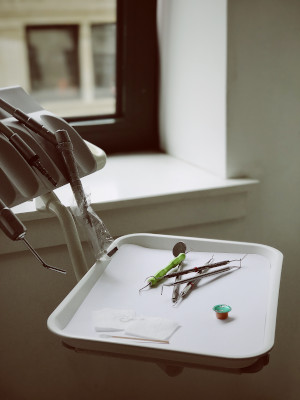Tips for Oral Health in Seniors with Dementia
Many studies were collected by researchers and analyzed. The results? Oral health in seniors with dementia is very likely to be poor. Seniors with dementia are more likely to have disease and decay in the teeth, and soft parts of the mouth.
Common problems seniors with dementia included:
- Bleeding from the gums (gingivitis)
- Gum infections (periodontitis)
- Plaque
- Fungal infections (oral thrush or oral candidiasis)
- Inflammation of the mouth and lips (stomatitis)
- Mouth ulcers (mucosal lesions)
- Reduced flow of saliva
Oral Health in Seniors with Dementia – The Way to Go
The study concluded with several points that would help the seniors keep or improve their oral health.
To maintain good oral health:
- Brush teeth daily. Sanitize any dentures, gently clean mouth with a gauze.
- Caregivers should include oral hygiene in the daily list care activities.
- Oral health education for caregivers to increase appreciation for its importance.
- Caregivers to use special care techniques if the senior feels threatened by oral care.
- Caregivers to perform regular informal oral health checks on the senior: Look in the mouth; observe their behavior; if possible, ask the senior if they think they need dental care.
- Dental care by a multi-disciplinary team, including consulting with any formal and informal caregivers.
A Word from the Commercial World
Many companies that produce items for dental and oral health, try to encourage customer awareness of oral health issues. It’s easy to find tips for oral health and advice to consumers on company websites.
As an example, we looked at advice from Colgate:
People with dementia symptoms or their caregivers should have a twofold plan:
- Remember/remind them to brush and floss regularly. Keeping the mouth clean will help prevent decay and other problems.
- Schedule regular dental checks. If there is a problem, it will be discovered early on.
Get Ready to be Impressed by Dental Health Technology
Subject to approval by the dentist, a senior with dementia, or the person caring for them, might find dental care made easier by these newer dental care aids:
Please note: This article is for informational purposes only and does not endorse or recommend any idea or product. Please discuss with, or, follow your own dentist’s instructions for your best dental care.
App enabled electronic toothbrushes
This type of toothbrush gives real-time feedback as to how well the teeth are being brushed. This could be of real assistance for a caregiver.
- Colgate’s Connect ™ E1 Toothbrush
- Philips Sonicare FlexCare Platinum Connected™
- A comparison of 9 app-enabled toothbrushes
Alternatives to Traditional Flossing
Flossing in between the teeth removes debris and prevents decay. For some using the traditional string (multi- or mono-filament) is difficult due to restricted movement, or cognitive abilities. A senior with dementia symptoms or their caregiver may find these much easier to use:
- Water powered flossers – a comparison of 5 top brands
- Air-powered flossers are an option where you won’t have to deal with dripping water. But a comparative evaluation found them to be less effective than the water flossers.
- Philips Sonicare AirFloss Rechargeable Electric™ Flosser
Home Care Kits
- From timers to toothbrush sanitizers and more, do more, with preventative dental care at home
Oral health in seniors with dementia is a very important topic. Dental and oral health does not affect only the mouth. Although it may be a challenge, tackling oral health, can affect the overall well-being of a senior with dementia symptoms. It can affect how a senior eats and drinks, how well they can digest their meal and their appetite.
The list of common problems above, shows how important oral care is. Proper efforts in oral health in seniors with dementia, can really make a difference for that senior.

